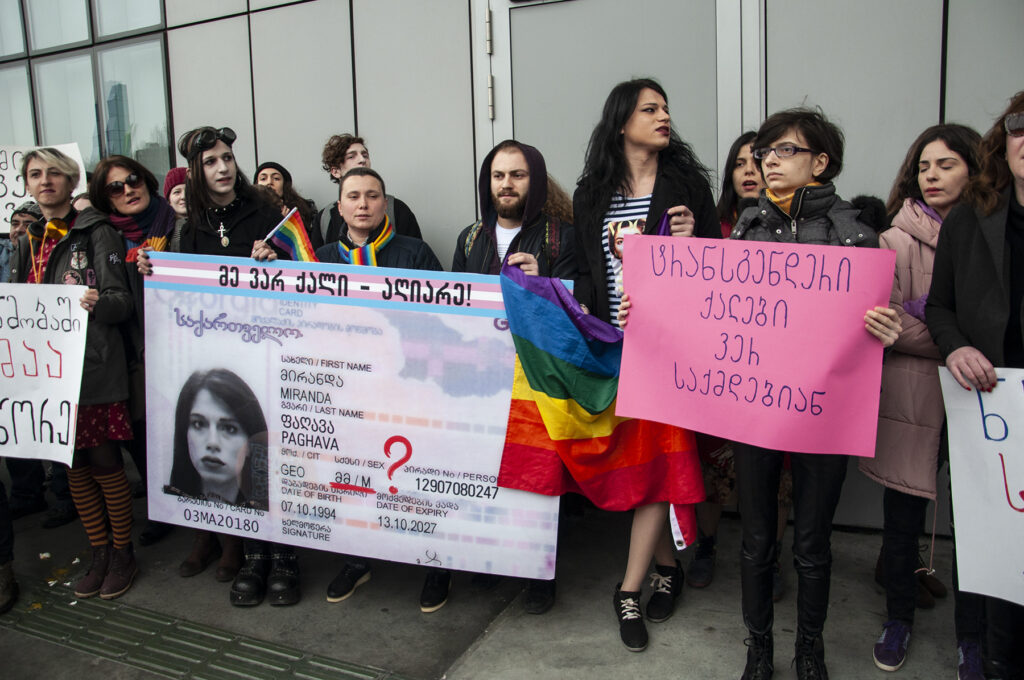A transgender woman in Georgia has had her gender officially recognised in the first such case in the country’s history.
Georgian women’s rights group WISG reported on 31 March that the civil registry under the Justice Ministry had accepted an appeal from the woman to have her gender marker to be changed from ‘male’ to ‘female’ in official documents, after she underwent sex-reassignment surgery.
The woman’s birth certificate was also reissued by the authorities, the group said.
The precedent came several months after Tea Tsulukiani stepped down as Justice Minister from her 8-year tenure. In 2018, human rights groups lambasted Tsulukiani after she claimed that non-governmental organisations were ‘pressuring’ her to ‘register a person with a man’s [sex] organs as a woman’.
WISG noted that despite the case, Georgia still lacked proper legislation, as trans people who did not need sex reassignment surgery or other invasive medical procedures were still barred from having their gender recognised.
In 2017, two Georgian transgender men filed a suit against Georgia in the European Court of Human Rights after the authorities refused to change their gender markers in official documents unless they underwent sex reassignment surgery. This requirement is not explicitly stated in any law in Georgia nor are the costs of surgery covered by the national health services.
The case, which is being litigated by WISG and the European Human Rights Advocacy Centre, a London-based rights group, is still pending in court.
The issue has been repeatedly raised by queer and women’s rights groups in recent years.
In 2018, the Georgian Women’s Movement marked 8 March, International Women’s Day, outside the Justice House in Tbilisi to demand accessible legal gender recognition for transgender people.
[Read more on OC Media: Feminists and transphobic protesters face off in Tbilisi]
Advocates have warned that transgender people are among the most vulnerable in the queer community, frequently facing discrimination in the labour market due to their lack of legal gender recognition.
[Read more: No place for transgender people in Georgia's labour market]
Transgender people were also among the worst hit by the coronavirus curbs on mobility and public life.




 31 March 2021
31 March 2021



